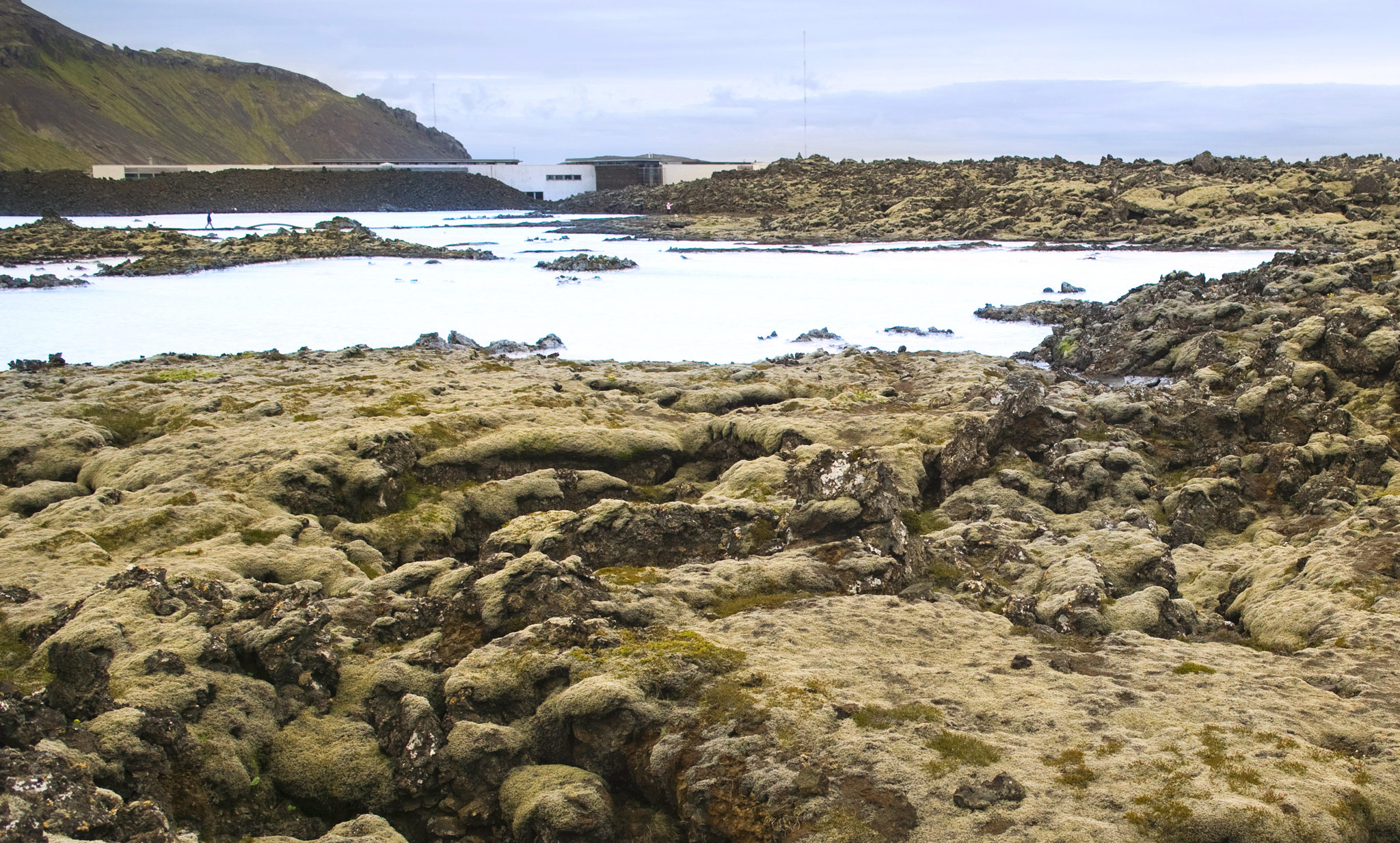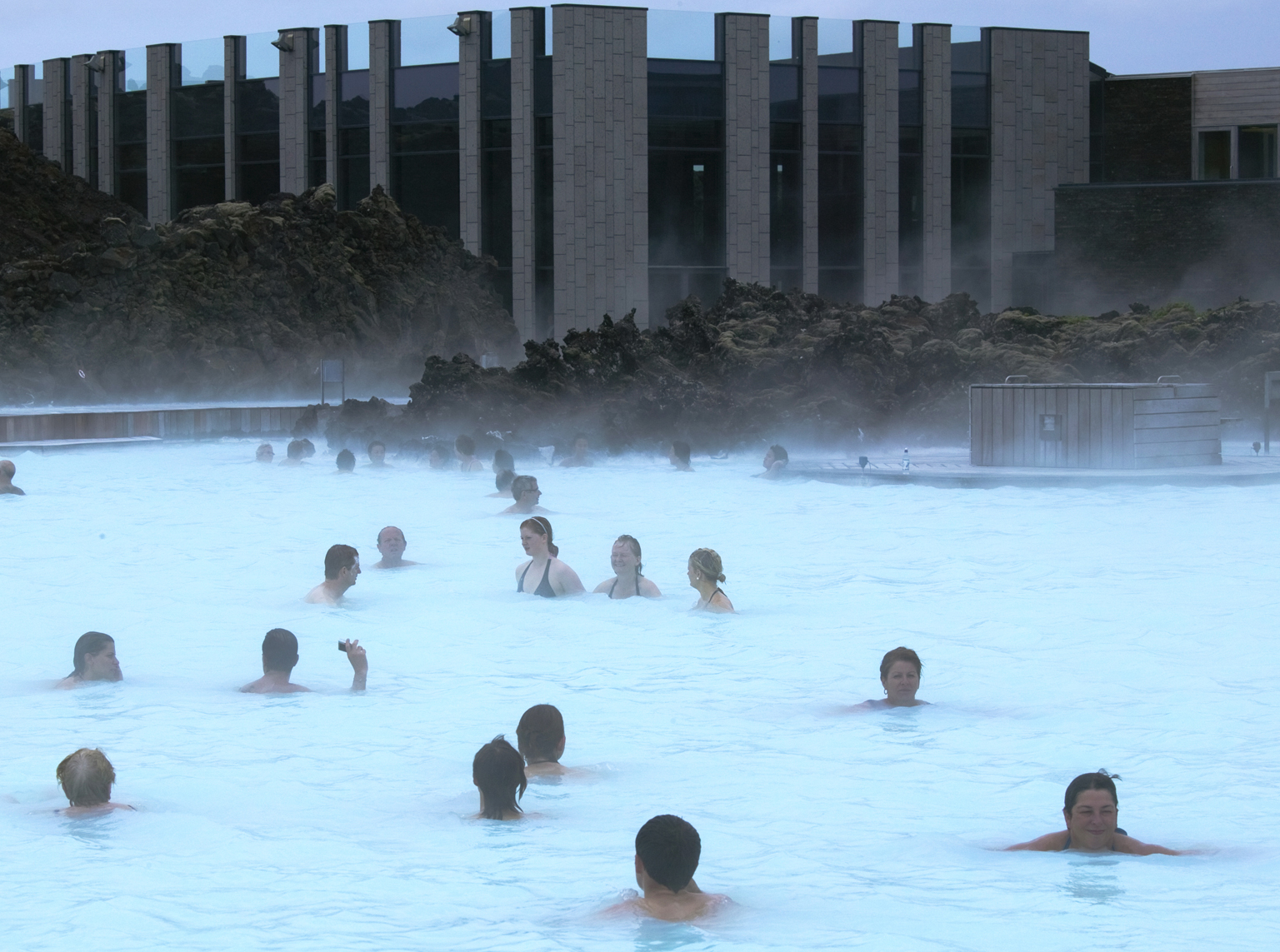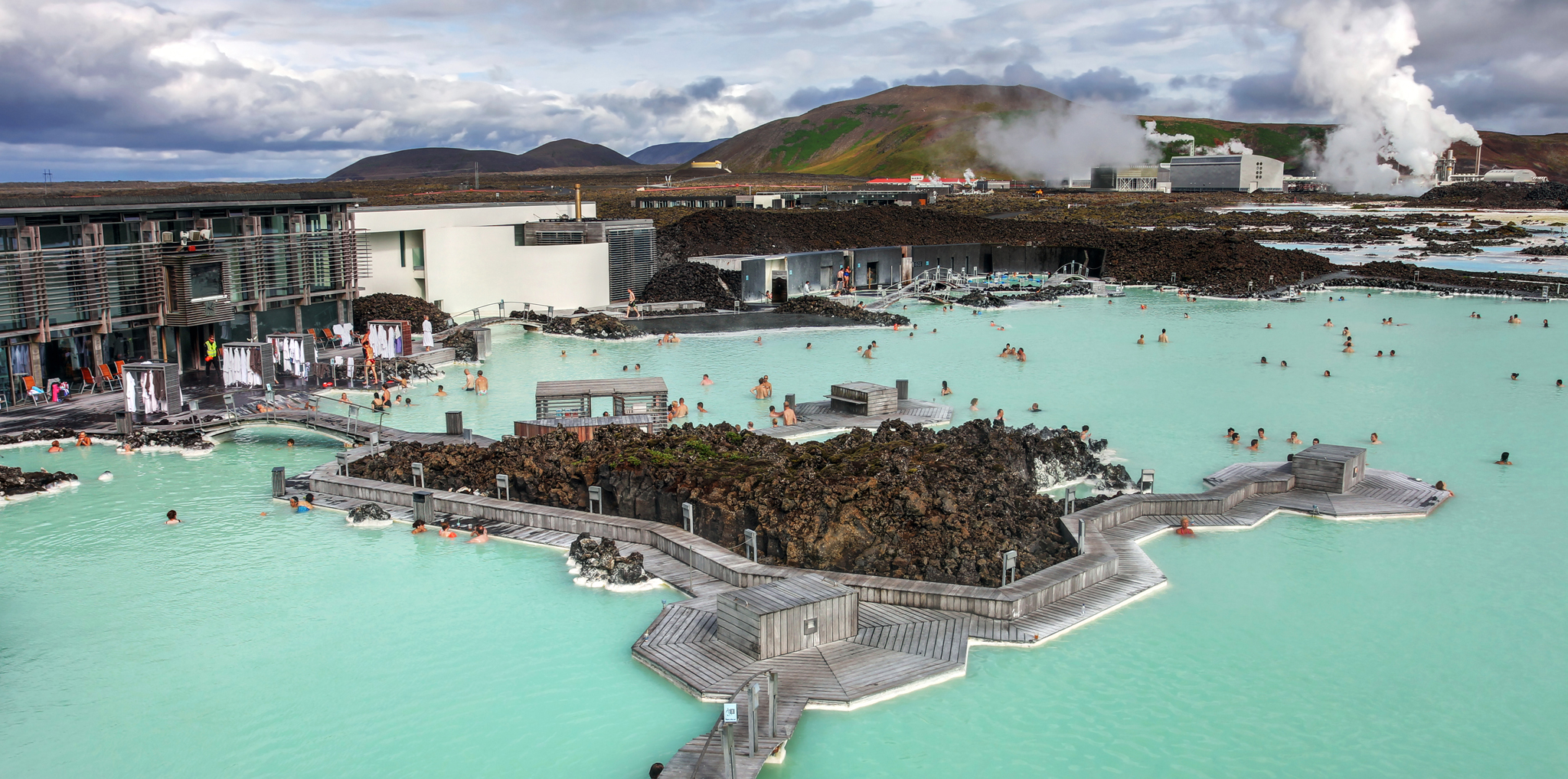
THE BLUE LAGOON AND AROUND
The Blue Lagoon (Bláa Lónið) is Iceland’s premier geothermal spa and one of the country’s most beautiful. Set in a desolate lava wilderness, the lagoon’s bright blue waters add a surreal splash of colour. You can laze in the steaming waters, have a beauty treatment, enjoy an excellent meal or stay nearby and catch the seasonal display of the aurora borealis. If you have your own transport, consider taking a detour to see some unusual sights, including Grindavík’s Saltfish Museum, the Seltún Hot Springs and Selatangar’s abandoned fishing camp.
NEED TO KNOW
 The Blue Lagoon, 240 Grindavík • Several tour buses daily from Reykjavík’s BSÍ station. Bus information: www.re.is • 420 8800 • www.bluelagoon.com • Open Jan–May: 8am–10pm daily; Jun: 7am–11pm daily ; Jul–Aug: 7am–midnight daily; Sep: 8am–10pm daily; Oct–Dec: 8am–8pm daily • Adm: ISK6,100–26,500 (pre-booking essential)
The Blue Lagoon, 240 Grindavík • Several tour buses daily from Reykjavík’s BSÍ station. Bus information: www.re.is • 420 8800 • www.bluelagoon.com • Open Jan–May: 8am–10pm daily; Jun: 7am–11pm daily ; Jul–Aug: 7am–midnight daily; Sep: 8am–10pm daily; Oct–Dec: 8am–8pm daily • Adm: ISK6,100–26,500 (pre-booking essential)
 Icelandic Saltfish Museum: www.grindavik.is
Icelandic Saltfish Museum: www.grindavik.is
 Seltún Hot Springs: www.visitreykjanes.is
Seltún Hot Springs: www.visitreykjanes.is
 Selatangar: www.visitreykjanes.is
Selatangar: www.visitreykjanes.is
- The Blue Lagoon’s high mineral content can damage your hair – condition before a swim and shampoo thoroughly afterwards.
- Apart from the main restaurant, there is a basic café at the Blue Lagoon´s entrance where you can buy coffee, cold drinks and snacks.
1. Background and Origin
The Blue Lagoon was created when superheated seawater flowing out of the Svartsengi Geothermal Power Station collected in the surrounding lava. Locals discovered that a warm dip cured skin ailments and public facilities opened here during the 1980s.

Background and Origin
2. Unique Lava Setting
The lagoon is bordered by rough masses of black lava boulders, which lie piled high around the perimeter, hemming in the powder-blue waters.
3. Geothermal Spa
The water, at a temperature of 37ºC (99ºF), is comfortable and the huge pool is an amazing place to unwind, with an adjacent sauna.

Geothermal Spa
4. Spa Services
Enjoy a relaxing massage in a private area of the lagoon itself, or opt for a cleansing rub-down using the naturally processed fine silica, minerals, algae and salt distilled from the Blue Lagoon’s waters. Beauty treatments are also available. It is a good idea to book any spa treatments in advance.

Seltún Hot Springs
5. Dermatology and Health Clinics
The Blue Lagoon’s mineral salts and silica have long enjoyed a reputation for quickly curing eczema, psoriasis and other skin problems. You can seek specialized treatment while staying at the clinic near the lagoon or simply buy products that you can use at home.
6. LAVA Restaurant
Enjoy Icelandic dishes, such as grilled lobster with garlic butter or fillet of lamb, with a view of the lagoon from your table. There’s also an excellent bar accessible from the water and a café selling snacks.
7. Icelandic Saltfish Museum
At Grindavík, a short drive south, is this eccentric museum that traces the fishing heritage of Iceland through dioramas and photographs.

Interior of Icelandic Saltfish Museum
8. Seltún Hot Springs
About 22 km (13 miles) east of the lagoon are the Seltún Hot Springs. One of the geysers exploded in 1999. Walk the boardwalk to explore the steaming vents.

Glimpse of the boardwalk that lets people explore Seltún Hot Springs
9. Selatangar
This village 15 km (9 miles) from the lagoon was abandoned in the 1850s. Ruins are visible through black sand dunes and lava outcrops.
10. Overnight Stay
Options for over-night accommodation include the Silica Hotel and the Northern Lights Inn – the latter is a particularly fantastic spot during the winter, when the colourful aurora borealis can at times be seen playing across the night sky.
GEOTHERMAL POWER
Svartsengi Geothermal Power Station takes advantage of its location over a fault line to provide cheap, green power and hot water for the Reykjanes Peninsula. Seawater is pumped over 1 km (0.6 miles) underground, turns to steam and is used to drive the turbines that help produce 76 MW of electricity. The steam is then cooled and released into the
Blue Lagoon. Five geothermal plants produce a quarter of the nation’s electricity.


